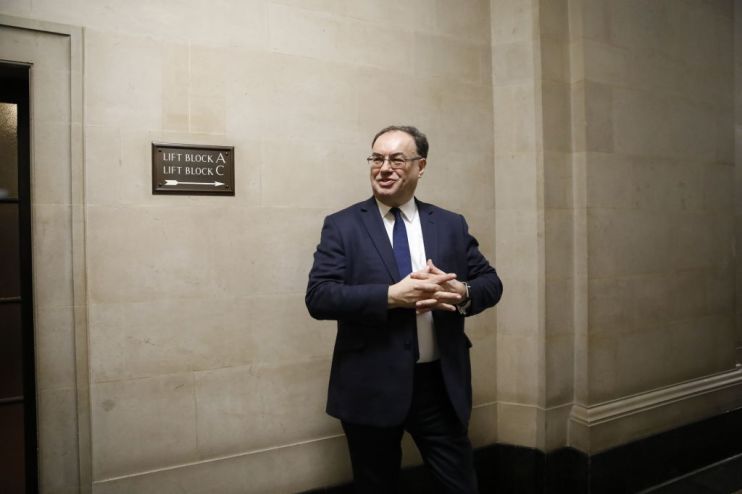Bank of England set to hold policy amid Brexit and lockdown uncertainty

The Bank of England is set to leave interest rates on hold when it announces monetary policy tomorrow, according to analysts, after expanding its bond-buying programme sharply last month.
Economists said there was little reason for the Bank to act. The latest lockdown measures have not been as damaging as feared, while the BoE asset-purchase programme has plenty of room left to run, they said.
It has been a whirlwind of a year for the Bank of England and its governor Andrew Bailey. He took over from Mark Carney in March, just as the coronavirus pandemic was beginning to bite.
Threadneedle Street has slashed interest rates to a record low level of 0.1 per cent in an effort to spur lending. And it has increased its asset-purchase programme, designed to flood the economy and markets with cash, to £895bn.
The Bank now has Brexit to contend with. But the arrival of effective coronavirus vaccines has brightened the outlook for the economy and markets.
No Christmas presents from Bank in December
At its November meeting, the Bank let off fireworks when it increased its asset-purchase programme by £150bn to £895bn while keeping rates on hold. It was a larger increase than the City had expected.
The move was designed to help the economy weather another rise in coronavirus cases and new restrictions.
But analysts said this week that the economy has fared better than expected. “The economy seems to have shown considerable resilience in the face of the latest lockdown and other restrictions,” said Howard Archer, chief economic adviser to the EY Item Club.
Economists said the Bank therefore does not need to alter monetary policy on Thursday. Archer said the £150bn November addition could mean the Bank can keep buying bonds until the end of 2021.
The programme sees the Bank create money to buy bonds in the secondary market, keeping borrowing costs low and putting money into the wider economy.
Bank readies for Brexit outcome
Although it is not set to change monetary policy, the Bank will be preparing itself for whichever Brexit outcome materialises.
Last week, Prime Minister Boris Johnson said a no-deal Brexit was a “strong possibility”. Yet talks this week have been more positive, causing the pound to rise sharply.
Analysts said a no-deal Brexit could well cause the Bank to boost monetary stimulus by increasing its bond-buying package.
Philip Shaw of Investec said: “The committee could respond by meeting in emergency format, as it did twice in March.”
Samuel Tombs, chief UK economist at Pantheon Macroeconomics, said: “We assume that the MPC [Monetary Policy Committee] would lift the target for its gilt purchases by £50bn in February, and by a further £50bn in May, rather than reduce bank rate below zero, in response to no-deal.”